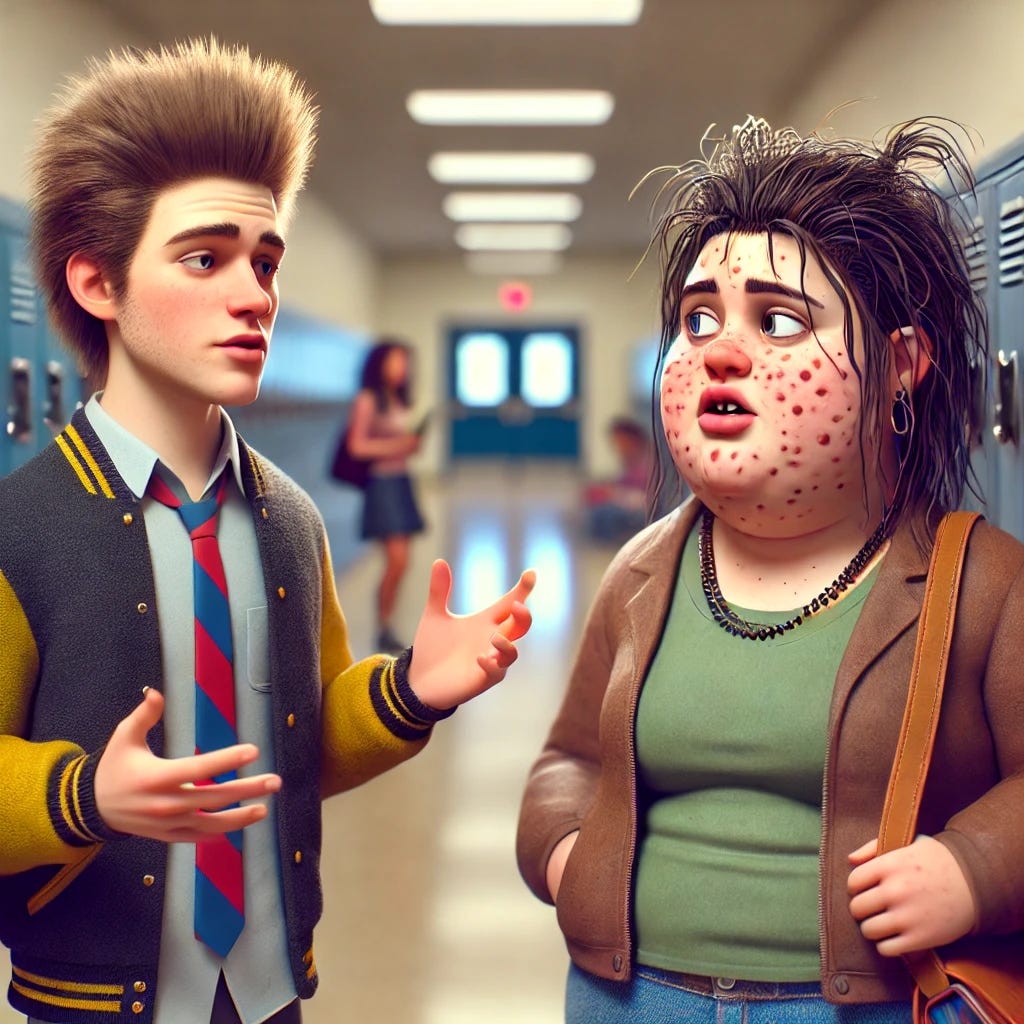A Drowned Thing Resurfaced
Let's workshop this poem about the therapeutic-level service provided by our nation's most repulsive--a thankless job it is high-time we start acknowledging if not celebrating!
scent of the day: Animale for Men, by Animale. Perfectly capturing that cheap-smelling freshie of the 90s (a time of reaction against the powerhouses of the late 70s and 80s, and serving as a historical marker for the war against masculinity that would ramp up in the following decades), this fragrance—green and rosy after a bright hit of lemon and spicy-powdery freesia, and boiling down to a pleasant leather-oakmoss-vetiver base reminiscent of new shoes—belongs to that juvenile niche of the aromatic green and aquatic-leaning fragrances I used to rock in middle school: I can smell the Nautica Classic covering up pubescent body odor as I walk in a huge bubble coat through the fragrance section of Filenes; I can hear Jon B’s “They Don’t Know” and Keith Sweat’s “Nobody” as I fantasize about my crush (a girl wearing Tommy Girl, baggy jeans, Grant Hill Fila sneakers, and huge gold earrings); I can taste the Winterfresh Gum and the Fruitopia; I can feel the clinks of braces kisses from Cinnaburst lips lined in Puerto Rican green.
A Drowned Thing Resurfaced
Ugliness rendered her powerless
enough to open up to
like a lock-and-key diary worth
more than any therapist:
secrets, eureka insights,
hemorrhaging out in free association
surprising the speakers themselves
almost as much as would
remembering she is there.









“A Drowned Thing Resurfaced” delves into the complexities of vulnerability and the inadvertent power of invisibility, exploring how physical “ugliness” can paradoxically grant access to hidden truths. The poem’s opening lines reveal a figure who, perceived as powerless, finds herself in a unique position—people around her are unguarded, freely sharing their “secrets” and “eureka insights” without the usual self-censorship. Her perceived lack of influence or significance creates a space where others, likely unconsciously, reveal the raw, unfiltered thoughts they might otherwise guard. This position renders her a confidante by default, not by design, as though her perceived lack of social capital provides a metaphorical “lock-and-key diary” quality—she becomes a repository for truths rarely spoken aloud.
This dynamic positions her presence as more meaningful than any formalized therapy session. Unlike a therapist who consciously guides conversations, she receives others’ revelations in an unstructured, “free association” manner, where spontaneous, deeply personal disclosures flow unimpeded. The term “hemorrhaging out” implies an overwhelming, almost involuntary release of inner content, underscoring the often uncontrolled nature of these revelations. This unintentional intimacy hints at the idea that, ironically, her “ugliness” makes her more attuned to the genuine, raw aspects of others’ personalities, allowing her to occupy a crucial, if unacknowledged, role within her social landscape.
Yet, the poem subtly gestures at the cost of this position. The phrase “almost as much as would / remembering she is there” suggests a tension between her role as a vessel for others’ thoughts and the near-erasure of her own presence. Her “ugliness” allows others to be raw and honest, yet it also makes her virtually invisible in the process. This dynamic underlines a paradox of human interaction: those deemed unthreatening or insignificant by societal standards often end up shouldering the emotional weight of others’ vulnerabilities, existing within a space where they are both essential and disregarded.
Ultimately, “A Drowned Thing Resurfaced” speaks to the unique role of the invisible observer, drawing attention to how societal judgments about appearance can inadvertently forge a channel for honest communication. The poem critiques how societal judgments around beauty affect self-perception and interpersonal dynamics, questioning what is lost when people are both drawn to and blind to someone’s presence. In capturing the transformative potential of “ugliness,” the poem suggests that value can emerge from invisibility, granting access to unguarded, authentic human moments.
invisibility, societal judgments, vulnerability, physical appearance, human interaction, lock-and-key diary, emotional weight, unguarded communication, authenticity, unfiltered thoughts